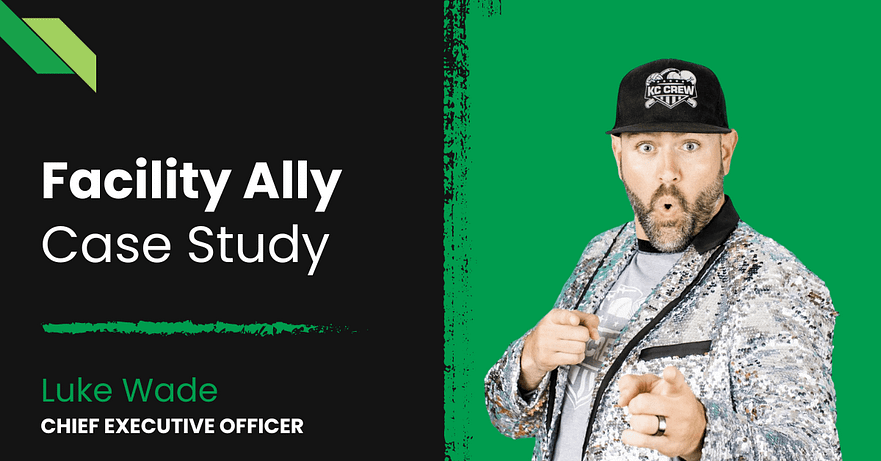What is an Offshore Development Center? The Complete Guide (And Why Most Companies Get It Wrong)
Most CTOs researching offshore development centers are asking the wrong question.
They’re not wondering “What is an ODC?” They’re really asking: “How do I scale my engineering team without the usual hiring headaches, budget overruns, and quality compromises?”
Here’s the thing—after helping over 100 tech companies build their development teams, I’ve seen this pattern repeatedly. Companies spend months researching ODC setup, legal requirements, and infrastructure costs when they could have had developers integrated into their workflow within weeks.
But let me back up. You came here to understand offshore development centers, so let’s start there. Then I’ll show you why most companies are overcomplicating their scaling problem.
What is an Offshore Development Center?
An Offshore Development Center (ODC) is a dedicated facility established in a foreign country that serves as an extension of your company’s development capabilities. Think of it as setting up a branch office specifically for software development, complete with:
- Dedicated development teams working exclusively on your projects
- Physical office space with all necessary infrastructure
- Local administrative staff and management
- IT systems, security protocols, and compliance measures
- Full operational control under your company’s brand and policies
The key difference between an ODC and traditional outsourcing? Control and commitment. With an ODC, you’re not hiring a vendor—you’re establishing a company presence in another country.
The Traditional ODC Model: Why It's More Complex Than You Think
Here’s what most articles won’t tell you about setting up an ODC: it’s basically like starting a new company in a foreign country.
Customer vs. Contractor ODC Models
Customer Model (You Own Everything):
- You establish a legal entity in the offshore location
- You handle all recruitment, HR, and administrative functions
- You manage office setup, infrastructure, and compliance
- You’re responsible for local employment laws and tax regulations
- Full control, but maximum complexity and risk
Contractor Model (Partner-Managed):
- An established ODC provider handles the infrastructure
- They manage recruitment, legal compliance, and operations
- You get dedicated teams without the administrative burden
- Less control, but significantly reduced complexity
The Build-Operate-Transfer (BOT) Approach
Some companies choose a hybrid path: partner with an ODC provider to build and operate the center, then transfer ownership once it’s stable. It’s like having someone else set up your company branch, then handing you the keys.
ODC Benefits: What Everyone Gets Right
Let’s cover the obvious advantages that every ODC article mentions:
Cost Efficiency and Economic Benefits
- Labor cost savings: 39-72% reduction compared to US-based teams
- Infrastructure savings: Lower office rent, utilities, and operational costs
- Tax advantages: Many offshore locations offer tech sector incentives
Access to Global Talent Pool
- Tap into regions with strong educational systems and technical expertise
- Access specialized skills not readily available in your local market
- Overcome domestic talent shortages and competitive hiring markets
24/7 Development Capabilities
- Round-the-clock productivity through time zone differences
- Continuous development cycles for faster time-to-market
- Enhanced support and maintenance capabilities
Scalability and Flexibility
- Scale teams up or down based on project demands
- Adapt resources to budget fluctuations
- Build redundancy in technical capabilities
The ODC Setup Process: What Most Companies Underestimate
If you’re determined to establish an ODC, here’s the reality of what’s involved.
1. Market Analysis and Location Selection
Critical factors to evaluate:
- Talent availability and educational infrastructure
- Political and economic stability
- Cultural compatibility and English proficiency
- Time zone advantages for your operations
- Government regulations and business incentives
- Internet connectivity and technological infrastructure
Top ODC locations globally:
- India: Largest tech talent pool, strong English proficiency
- Philippines: Cultural alignment with the US, excellent English skills
- Eastern Europe: High technical expertise, favorable time zones for EU/US
- Latin America: Nearshore advantages, growing tech ecosystems
- Vietnam: Emerging tech hub with competitive costs
2. Legal Entity Establishment
- Register as a legal business entity in the chosen country
- Navigate local employment laws and tax regulations
- Establish compliance frameworks for data protection
- Set up intellectual property protection measures
- Understand foreign direct investment (FDI) requirements
3. Infrastructure Development
Physical setup requirements:
- Office space selection and lease negotiations
- IT infrastructure and security systems
- High-speed internet and backup connectivity
- Development tools and software licenses
- Security protocols and access controls
4. Team Building and Recruitment
Recruitment challenges:
- Creating detailed job descriptions for each role
- Screening candidates for technical and cultural fit
- Managing interview processes across time zones
- Negotiating competitive compensation packages
- Establishing performance evaluation frameworks
5. Operational Integration
Key integration elements:
- Communication channels and collaboration tools
- Project management methodologies
- Quality assurance processes
- Knowledge transfer protocols
- Cultural integration and training programs
ODC Challenges: The Reality Check
Communication and Cultural Barriers
- Language differences affecting project clarity
- Time zone coordination for real-time collaboration
- Cultural work style variations
- Different approaches to conflict resolution and feedback
Quality Control and Management
- Maintaining consistent coding standards across locations
- Ensuring knowledge transfer and documentation
- Managing remote team performance
- Balancing autonomy with oversight requirements
Security and Compliance Risks
- Data protection across international boundaries
- Intellectual property security in foreign jurisdictions
- Compliance with multiple regulatory frameworks
- Managing vendor risk and business continuity
Hidden Costs and Complexity
- Legal setup and ongoing compliance costs
- Infrastructure investment and maintenance
- Administrative overhead and management time
- Currency exchange rate volatility
ODC vs. Traditional Outsourcing: Understanding the Differences
| Aspect | ODC | Traditional Outsourcing |
|---|---|---|
| Team Dedication | Exclusive teams for your projects | Shared resources across clients |
| Control Level | High - direct management | Low - vendor managed |
| Cultural Integration | Strong company culture alignment | Limited cultural integration |
| Setup Complexity | High - establish legal entity | Low - contract with vendor |
| Long-term Commitment | High - strategic investment | Low - project-based engagement |
| Cost Structure | Fixed infrastructure + variable labor | Variable based on project scope |
| Risk Management | You manage operational risks | Vendor manages most risks |
When Should You Consider an ODC?
ODCs make sense for companies that meet specific criteria.
Ideal ODC Candidates
- Large-scale operations: 50+ developers needed long-term
- Established companies: Revenue $10M+ with stable growth
- Long-term projects: Multi-year development commitments
- Control requirements: Need direct management of teams
- Compliance needs: Strict security and regulatory requirements
- Market expansion goals: Planning to enter the offshore market
When ODCs Don’t Make Sense
- Startups needing quick team scaling (2-12 months setup time)
- Small teams (under 10 developers) where overhead exceeds benefits
- Short-term projects or uncertain development needs
- Companies without international business experience
- Budget constraints are preventing significant upfront investment
The Full Scale Alternative: Staff Augmentation Done Right
Here’s where I challenge conventional thinking.
Most companies researching ODCs don’t actually need the complexity of establishing an offshore entity. What they need is simple: great developers who integrate seamlessly into their existing workflow.
That’s exactly what we built at Full Scale—but without the headaches.
Why Staff Augmentation Beats Traditional ODCs
- Faster Setup: Weeks, not months, to get started
- Lower Risk: No legal entities or compliance overhead
- Full Integration: Developers work directly with your team
- Proven Results: Over 3 million coding hours delivered to 100+ clients
- US-Based Contracts: IP protection and legal security
Our Philippines Advantage
- Cultural Alignment: Western work culture compatibility
- English Proficiency: Native-level communication skills
- Technical Expertise: Strong educational foundation
- Time Zone Benefits: Extended coverage for US companies
- 95%+ Retention Rate: Developers stay long-term
How It Works
- Discovery Call: Understand your specific needs and team culture
- Developer Matching: Present vetted candidates within days
- Integration Support: Seamless onboarding into your workflow
- Ongoing Management: We handle HR, payroll, and administrative tasks
- Scale as Needed: Add or adjust team members based on project demands
Case Study: From ODC Planning to Full Scale Success
One of our clients, a fast-growing SaaS company, spent six months researching ODC setup in the Philippines. They were looking at legal requirements, office space, and recruitment plans for a 12-person development team.
The traditional ODC path would have required:
- 6-12 months setup time
- $200K+ initial investment
- Legal entity establishment
- Office lease and infrastructure
- Full HR and administrative team
With Full Scale, they got:
- Team members integrated within 2 weeks
- Zero upfront infrastructure costs
- Dedicated developers working directly with their US team
- All administrative tasks are handled by us
- 60% cost savings compared to US hiring
Results after 18 months:
- Scaled from 2 to 12 developers successfully
- Maintained 95% team retention
- Accelerated product development by 40%
- Achieved their growth goals without ODC complexity
ODC Best Practices: If You Still Choose This Route
If you’re determined to establish an ODC despite the complexity, here are essential best practices:
Effective Communication Strategies
- Establish overlapping working hours for real-time collaboration
- Use multiple communication channels (video, chat, project management)
- Implement clear documentation and knowledge-sharing protocols
- Schedule regular all-hands meetings and cultural exchange sessions
Quality Assurance Frameworks
- Define coding standards and development methodologies upfront
- Implement automated testing and continuous integration
- Regular code reviews and quality audits
- Performance monitoring and feedback loops
Team Management Approaches
- Provide cultural sensitivity training for both sides
- Establish clear roles, responsibilities, and reporting structures
- Create career development paths for offshore team members
- Foster team building and company culture integration
Risk Mitigation Strategies
- Comprehensive legal agreements and IP protection
- Data security protocols and compliance measures
- Business continuity planning and disaster recovery
- Regular security audits and risk assessments
The Future of Offshore Development
The ODC model is evolving rapidly. Here’s what’s driving change:
Emerging Technology Integration
- AI and machine learning automation in development processes
- Cloud-first infrastructure reduces physical setup requirements
- Advanced collaboration tools make remote work seamless
- Automated testing and deployment improve quality control
Remote Work Impact
- Hybrid ODC models combining physical and virtual teams
- Increased focus on outcomes over location
- Greater emphasis on cultural fit and communication skills
- Flexible team structures adapting to project needs
Market Trends
- Rising costs in traditional offshore locations
- Emergence of new talent hubs globally
- Increased focus on security and compliance
- Shift toward outcome-based partnerships
Making the Right Choice for Your Company
Before committing to an ODC, ask yourself these critical questions:
- Do you need the complexity? Can staff augmentation meet your needs faster and cheaper?
- Do you have the resources? Can you handle 6-12 months of setup and ongoing management?
- Is this strategic? Does establishing an offshore presence align with long-term goals?
What’s the real cost? Have you calculated hidden expenses and opportunity costs?
Choose the Right Path for Your Scaling Needs
Offshore development centers can be powerful tools for the right companies under the right circumstances. But they’re not the universal solution that many articles suggest.
For most growing tech companies, the complexity, cost, and time investment of establishing an ODC far outweigh the benefits. What they actually need is simple: access to great developers who can start contributing immediately.
That’s the problem we solved at Full Scale. We give you all the benefits of offshore development—cost savings, access to talent, scalability—without any of the complexity of setting up and managing an ODC.
We’ve helped over 100 companies build their software teams successfully. Let’s discuss how we can help you achieve your growth goals faster and more efficiently than traditional ODC setup.
Want to Build a Stronger Dev Team?
Join 20,000+ tech leaders and Saas Founders who get our weekly playbook on hiring, onboarding, and leading developers—built from what we’ve learned scaling a team of 300+ engineers.
The same way you do with local developers – through proper code review processes and technical leadership. Our clients often see quality improvements because offshore developers have more time to focus on clean code instead of rushing to meet unrealistic deadlines. Plus, our 95% retention rate means developers build institutional knowledge over time instead of constantly starting over.
Our Philippines-based developers work during your business hours and speak fluent English. Most of our clients forget they’re working with an offshore team within the first month. The Philippines has strong English proficiency (22nd globally) and cultural compatibility with US business practices.
Two weeks from decision to your first productive developer. We maintain a bench of vetted developers specifically for quick deployment. While traditional ODCs take 12-18 months to set up, our staff augmentation model gets you productive developers in 2 weeks.
This rarely happens due to our vetting process, but when it does, we take full responsibility. We’ll replace them immediately at no cost to you. No long-term contracts means you’re never stuck with developers who aren’t a good fit.
Our 95% retention rate comes from competitive compensation, career growth opportunities, and integration with client company culture. Developers want to stay because they feel like valued team members working on meaningful projects.
All contracts are governed by US law with complete IP protection. We provide the same level of IP protection as local employees, with the added security of US legal jurisdiction. Your code, data, and intellectual property are fully protected.



